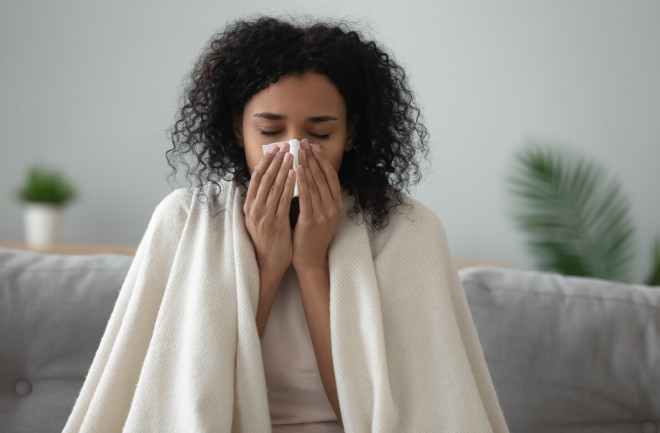Earlier this year, a wave of human metapneumovirus — also known as HMP, or just MPV — swept across the U.S. It’s a virus that causes upper and lower respiratory tract infections, is common and often goes undiagnosed. But for most, the level of concern should be about the same as a common cold, say experts.
“We do know that there are some people, as with all respiratory viruses, who should take increased precautions,” says Jennifer Schuster, a pediatric infectious diseases physician at Children’s Mercy Kansas City, adding that those who are immunocompromised, infants and the elderly are most at risk of severe illness.
What Is Human Metapneumovirus?
Dutch scientists first discovered metapneumovirus — also known as HMPV or just MPV — in 2001, but it has circulated amongst human populations for decades prior. The researchers found that by the age of five, almost all children in the Netherlands had already been exposed to it.
MPV belongs to the paramyxovirus family of viruses, which also contains respiratory syncytial virus (RSV) and measles.
Read More: Why Do Some People Get Sick All the Time, While Others Stay in Freakishly Good Health?
What Are HMPV Symptoms?
The U.S. Centers for Disease Control and Prevention lists symptoms such as cough, fever, congestion, and shortness of breath. In some cases, it can progress into bronchitis or pneumonia.
“Typically, most children will get metapneumovirus within the first couple of years of their life,” Schuster says. “People are reinfected throughout life. But once you have some immunity, your infections are typically milder.”
Read More: Chicken Noodle Soup Really Can Help When You're Sick
HMPV Cases on the Rise
Metapneumovirus made headlines earlier this year as a particularly strong wave emerged in the U.S. This Schuster explains is “unusual” but is likely due to a lag effect during the COVID-19 lockdowns and social distancing, which suppressed many respiratory illnesses, including those caused by metapneumovirus.
Normally, metapneumovirus circulates from late winter to early spring, peaking around February and March.
“We had a period of two to three years, depending upon where you lived, where very few people had MPV,” she says. “And as viruses started circulating again, we saw this increase.”
“As we come out of the pandemic, we'll likely go back to that normal circulation with both MPV and these other respiratory viruses,” she added. “But I still expect we’ll have some years that are higher than others.”
Read More: Will COVID-19 Need an Annual Vaccine Like the Flu?
Should You Be Worried?
Though the overall risk posed by metapneumovirus to most of us is deemed low, health experts encourage the same precautions for other respiratory illnesses; these include regular and thorough hand washing, avoiding touching your face and limiting contact with others at risk if ill.
Since, in most cases, metapneumovirus will clear up on its own after a few days, treatment is generally similar to the flu or cold: rest, plenty of fluids and managing the symptoms with over-the-counter medicines, Schuster explains.
“All the things that your parents or your doctor always told you for the common cold are what we recommend,” says Schuster. “Symptoms typically lasts a couple of days, and then you are back on your feet just like most other common cold viruses.”
Greater precautions should be taken by those at greater risk — the immunocompromised, infants and elderly people — she adds. “Those are the people that we worry about with other viruses, like influenza, and we recommend taking extra precautions, like getting an influenza vaccine, as well.”
Read More: Is Vitamin C Actually an Effective Cold Remedy

